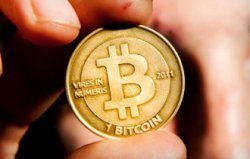Bitcoin Dwolla
The rise of e-currencies like Bitcoin threatens to undo state monopolies in fiat money, which is why the United States is eyeing Bitcoin and other lesser known currencies of late. Though the United States arguably has no jurisdiction whatsoever to regulate Bitcoin, the Department of Homeland Security seized $2.9 million in Bitcoins from Dwolla, a third party payment platform administered by Mt. Gox, a Japanese based Bitcoin exchange. The funds in question belonged to Mt. Gox’s U.S. subsidiary, Mutum Sigillum LLC.
The justification for seizing the account was that Mt. Gox owner Mark Karpeles has opened the account in question and concealed his plans to run a money transfer business from it. After all, the government has a right to know about what you intend to do with your account and your money. Indeed, if you structure your transfers, deposits, and withdrawals to remain under the $10, 000 threshold triggering government notification, you have committed a federal crime by running afoul of a federal money laundering statute. Even if you happen to think it’s none of the government’s business, the fact remains that the government thinks it is their business, and if you structure your transactions to avoid the reporting requirement, you’re going to jail.
Adding to the Kafka-esque nature of DHS’s seizure of Mt. Gox funds in the Mutum Sigillum LLC account is the fact that a search of court records turns up nothing in the way of a criminal indictment or proceeding. Over at Gigaom, Jeff John Roberts speculates that the records may be under seal. Mt. Gox is significant because it only accepts money via wire transfers or e-currencies, eschewing mainstream banks where financial transactions are subject to government tracking.







